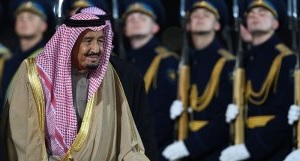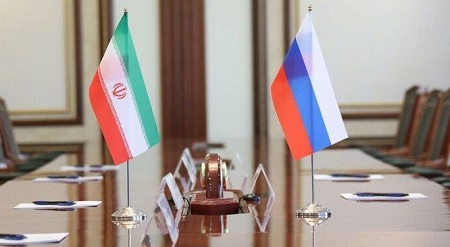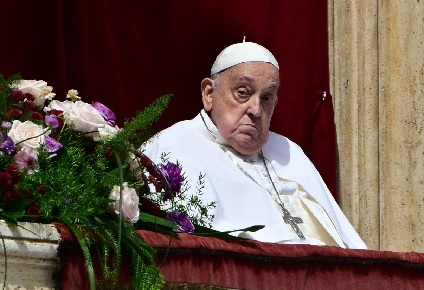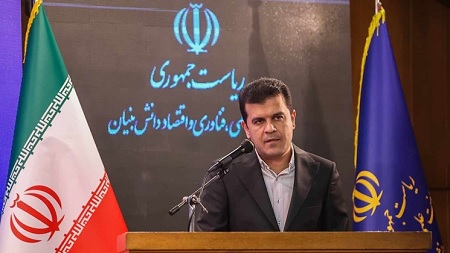PIMI is not a political website. It has been established to develop the Iranian trade with the globe. Oil and Gas are both the main sources of polymer production. So, any serious threat to the oil&gas world will impact our industry and eventually important for all of us. Alexy Romanov in cooperation with Dr. Rajab Safarov, are the old friends of our media. They send us, once a while, analytical articles about the regional important subjects usually hardly found in west. This material, without any objection from our part, is one of it and worth to read it partly. The cartoons and some insulting phrases and words are removed intentionally. Also no copy editing has been imposed to the main content. (By, Alexey Romanov, specially for IRAN.RU, October 10, 2017)
not a political website. It has been established to develop the Iranian trade with the globe. Oil and Gas are both the main sources of polymer production. So, any serious threat to the oil&gas world will impact our industry and eventually important for all of us. Alexy Romanov in cooperation with Dr. Rajab Safarov, are the old friends of our media. They send us, once a while, analytical articles about the regional important subjects usually hardly found in west. This material, without any objection from our part, is one of it and worth to read it partly. The cartoons and some insulting phrases and words are removed intentionally. Also no copy editing has been imposed to the main content. (By, Alexey Romanov, specially for IRAN.RU, October 10, 2017)
October 4-7, accompanied by a huge number of officials, in Moscow was the King of Saudi Arabia Salman Al Saud, who was received by President Vladimir Putin and Prime Minister Dmitry Medvedev. This was the first state visit of the monarch of the Kingdom of Saudi Arabia (KSA) since 1926. Separate programs of negotiations were with the Foreign Minister of the KSA, the Minister of Energy, as well as with the MTC and investments. However, according to the results, only a few agreements were signed, and even those basically memorandums of intentions of the parties, and not contracts for tens of billions of dollars, as it was said the day before. It is clear. After all, only two main issues are important for Riyadh. First: Iran and its policies in the region; The second is the coordination of oil prices with Russia. And it is not the desire of the Er-Series to invest in the Russian Federation. Everything else is closely tied to these two questions.Iranian factor of the Moscow visitThe Saudis openly consider Tehran their main competitor in the Persian Gulf and the Middle East in general, see it as the main threat to their security. Almost daily in Riyadh, it is loudly said that the Shiites are expanding in the Middle East, and the Islamic Republic of Iran (IRI) is implementing a global plan to create a Shia arc in Iran, Iraq, Syria, Lebanon, Bahrain, Yemen and Eastern Province of KSA , populated mainly by Shiites. Therefore, Riyadh is very concerned about all possible partners and allies of Tehran, and especially Moscow, which is capable of supplying the Armed Forces of the Islamic Republic of Iran so that they will be able to quickly destroy the weak armies of the monarchies of the Persian Gulf. Therefore, the Saudis have repeatedly, since 2007, offered Moscow to roll out military cooperation with the Islamic Republic of Iran in exchange for the purchase of the kingdom of Russian armaments and multibillion investments in the Russian economy. But when Moscow supported the UN Security Council draft resolution on the imposition of financial and economic sanctions against Tehran under the pretext that the peaceful nuclear program (INP) is being transformed into a nuclear weapons program, and when the Russian Federation refused to fulfill the contract for supplying Iran’s armed forces with a purely defensive antiaircraft- the S-300 missile system, the KSA simply forgot about the already pre-authorized military-technical contracts with Rosoboronexport worth more than $ 2 billion. No investments from the KSA have ever come to the Russian economy.After the “Arab Spring”, in 2013, Sochi and Moscow were visited by the head of Saudi intelligence Prince Bandar and promised President Vladimir Putin to block all Arab terrorists during the Winter Olympic Games – 2014, and to purchase Russian weapons and invest billions in the Russian economy if Russia refuses to partner with Iran, especially in Syria. He was politely refused.And then Riyadh was not up to Russia. The coming to power in the Arab Republic of Egypt of the prokatary “Muslim Brotherhood”, which began to threaten Saudi Arabia itself, forced to take urgent measures to organize a coup that resulted in Marshal Sisi coming to power in Egypt. Then, KSA was drawn into the Yemeni war because of rabid Iranophobia, seeing the hand of Tehran in the rebellion of the Shiite Husit rebels. Saudi Arabia has made a coalition of Arab countries and has barbarously bombed cities with civilians, triggering a humanitarian catastrophe in Yemen. But the hussites did not succeed, having spent tens of billions of dollars on the war.In Saudi Arabia, a crisis arose against the backdrop of a sharp drop in oil prices and the cost of participation in two wars.The internal crisis in the Council of Cooperation of the Arab States of the Persian Gulf (GCC) was also played out, when in June of this year the KSA, the United Arab Emirates, Bahrain and several Arab countries severed all relations with Qatar, accusing it of too active relations with Iran and supporting terrorism and extremism. The situation and defeat of radical Islamists in Syria, where Riyadh generously financed the armed opposition, greatly worsened the situation. KSA began to weaken from within and lose prestige in the external arena. And then again, US President Trump forbade Riyadh to force to overthrow the ruling regime in Doha. So it was necessary for the Saudis to return to playing the Russian card again.Oil factorThe visit of King Salman was very actively lobbied by the Russian Direct Investment Fund under VEB, which was created to attract multibillion investments from the Arab Gulf countries to the Russian economy in a variety of spheres. For six years, its leader K. Dmitriev traveled to the “six” of the GCC member countries, but only received promises from a number of them, including Saudi Arabia. And only at the beginning of 2017 relations between Moscow and Riyadh began to improve, primarily thanks to the agreement on the regulation of oil prices between Moscow and Riyadh on the basis of the OPEC + agreement. A big role in this was played by the Minister of Energy of Russia Alexander Novak. And then the question of the visit of King Salman to Moscow really became.After all, his arrival in Russia, of course, is caused not only by the current affairs in the region, but also by the situation on the world oil market. Crown Prince Mohammed bin Salman does not yet represent the consolidated position of the Al Saud dynasty on oil. This, of course, is the King’s question. And the situation demanded his arrival. Russia and Saudi Arabia are the two largest producers of oil, highly dependent on it. Saudi Arabia, for geographical reasons, simply can not create its own stable non-oil economy, and Russia has become an oil-dependent country for purely subjective reasons.As the largest oil producers, Russia and the kingdom, of course, are competitors. In politics, they have always been, if not enemies, very close to that. But now they have a common enemy, the appearance of which they both missed and drew attention to it too late. This enemy is shale hydrocarbons. To be frank, the reasons why everyone, including experts, missed the shale factor are understandable. Shale hydrocarbons and the technology of their extraction are known from the beginning of the XIX century, but from the point of view of profitability, the extraction of shale oil and gas is absolutely unprofitable now. Another question is that the Americans managed to create a technology not just for its cheap production, but also to make the most important – a self-sufficient system of vertically integrated economic, economic, financial chains that built knowingly unprofitable raw materials into the production cycle in such a way that its high price ceased to be a problem, and turned into a solution. It is not surprising that professional specialists in their fields failed to assess the entire range of tasks in a qualitative and timely manner, which were resolved and which gave impetus to the slate revolution.In general, amid the failure of professionals, the miscalculation of Russian “business captains” is quite forgivable, but this led to a delay of three to five years even after the world’s leading players realized the threat of a new factor. Nevertheless, now the problem is outlined, and OPEC, first of all Saudi Arabia, as well as Russia, are looking for options to counter this threat.While there are no options, except for purely administrative control over the total volume of production and exports. Only in this way is it possible to maintain a balance by which it is possible to restrain the production of shale hydrocarbons at levels that do not threaten the complete collapse of the oil and gas markets. However, the budgets of all oil producers are popping up.Slate producers are increasing investments in innovative technologies of extraction and processing, gradually reducing the cost of production and increasing production volumes. There is a problem of even closer and operative coordination of traditional producers. The adopted OPEC rules, when the quotas for extraction are clarified twice a year, cease to satisfy the operational condition, and the task arose to create a kind of situational center for operational decisions that are binding for all. In other words, in politics, Saudi Arabia and Russia can have any disagreements, even hostile, but under no circumstances should this concern the sacred cow-oil policy. This is the second most important reason for the arrival of King Salman in Moscow. The question of survival.If interested, please read the whole article at the “SOURCE”
Therefore, the Saudis have repeatedly, since 2007, offered Moscow to roll out military cooperation with the Islamic Republic of Iran in exchange for the purchase of the kingdom of Russian armaments and multibillion investments in the Russian economy. But when Moscow supported the UN Security Council draft resolution on the imposition of financial and economic sanctions against Tehran under the pretext that the peaceful nuclear program (INP) is being transformed into a nuclear weapons program, and when the Russian Federation refused to fulfill the contract for supplying Iran’s armed forces with a purely defensive antiaircraft- the S-300 missile system, the KSA simply forgot about the already pre-authorized military-technical contracts with Rosoboronexport worth more than $ 2 billion. No investments from the KSA have ever come to the Russian economy.After the “Arab Spring”, in 2013, Sochi and Moscow were visited by the head of Saudi intelligence Prince Bandar and promised President Vladimir Putin to block all Arab terrorists during the Winter Olympic Games – 2014, and to purchase Russian weapons and invest billions in the Russian economy if Russia refuses to partner with Iran, especially in Syria. He was politely refused.And then Riyadh was not up to Russia. The coming to power in the Arab Republic of Egypt of the prokatary “Muslim Brotherhood”, which began to threaten Saudi Arabia itself, forced to take urgent measures to organize a coup that resulted in Marshal Sisi coming to power in Egypt. Then, KSA was drawn into the Yemeni war because of rabid Iranophobia, seeing the hand of Tehran in the rebellion of the Shiite Husit rebels. Saudi Arabia has made a coalition of Arab countries and has barbarously bombed cities with civilians, triggering a humanitarian catastrophe in Yemen. But the hussites did not succeed, having spent tens of billions of dollars on the war.In Saudi Arabia, a crisis arose against the backdrop of a sharp drop in oil prices and the cost of participation in two wars.The internal crisis in the Council of Cooperation of the Arab States of the Persian Gulf (GCC) was also played out, when in June of this year the KSA, the United Arab Emirates, Bahrain and several Arab countries severed all relations with Qatar, accusing it of too active relations with Iran and supporting terrorism and extremism. The situation and defeat of radical Islamists in Syria, where Riyadh generously financed the armed opposition, greatly worsened the situation. KSA began to weaken from within and lose prestige in the external arena. And then again, US President Trump forbade Riyadh to force to overthrow the ruling regime in Doha. So it was necessary for the Saudis to return to playing the Russian card again.Oil factorThe visit of King Salman was very actively lobbied by the Russian Direct Investment Fund under VEB, which was created to attract multibillion investments from the Arab Gulf countries to the Russian economy in a variety of spheres. For six years, its leader K. Dmitriev traveled to the “six” of the GCC member countries, but only received promises from a number of them, including Saudi Arabia. And only at the beginning of 2017 relations between Moscow and Riyadh began to improve, primarily thanks to the agreement on the regulation of oil prices between Moscow and Riyadh on the basis of the OPEC + agreement. A big role in this was played by the Minister of Energy of Russia Alexander Novak. And then the question of the visit of King Salman to Moscow really became.After all, his arrival in Russia, of course, is caused not only by the current affairs in the region, but also by the situation on the world oil market. Crown Prince Mohammed bin Salman does not yet represent the consolidated position of the Al Saud dynasty on oil. This, of course, is the King’s question. And the situation demanded his arrival. Russia and Saudi Arabia are the two largest producers of oil, highly dependent on it. Saudi Arabia, for geographical reasons, simply can not create its own stable non-oil economy, and Russia has become an oil-dependent country for purely subjective reasons.As the largest oil producers, Russia and the kingdom, of course, are competitors. In politics, they have always been, if not enemies, very close to that. But now they have a common enemy, the appearance of which they both missed and drew attention to it too late. This enemy is shale hydrocarbons. To be frank, the reasons why everyone, including experts, missed the shale factor are understandable. Shale hydrocarbons and the technology of their extraction are known from the beginning of the XIX century, but from the point of view of profitability, the extraction of shale oil and gas is absolutely unprofitable now. Another question is that the Americans managed to create a technology not just for its cheap production, but also to make the most important – a self-sufficient system of vertically integrated economic, economic, financial chains that built knowingly unprofitable raw materials into the production cycle in such a way that its high price ceased to be a problem, and turned into a solution. It is not surprising that professional specialists in their fields failed to assess the entire range of tasks in a qualitative and timely manner, which were resolved and which gave impetus to the slate revolution.In general, amid the failure of professionals, the miscalculation of Russian “business captains” is quite forgivable, but this led to a delay of three to five years even after the world’s leading players realized the threat of a new factor. Nevertheless, now the problem is outlined, and OPEC, first of all Saudi Arabia, as well as Russia, are looking for options to counter this threat.While there are no options, except for purely administrative control over the total volume of production and exports. Only in this way is it possible to maintain a balance by which it is possible to restrain the production of shale hydrocarbons at levels that do not threaten the complete collapse of the oil and gas markets. However, the budgets of all oil producers are popping up.Slate producers are increasing investments in innovative technologies of extraction and processing, gradually reducing the cost of production and increasing production volumes. There is a problem of even closer and operative coordination of traditional producers. The adopted OPEC rules, when the quotas for extraction are clarified twice a year, cease to satisfy the operational condition, and the task arose to create a kind of situational center for operational decisions that are binding for all. In other words, in politics, Saudi Arabia and Russia can have any disagreements, even hostile, but under no circumstances should this concern the sacred cow-oil policy. This is the second most important reason for the arrival of King Salman in Moscow. The question of survival.If interested, please read the whole article at the “SOURCE”













